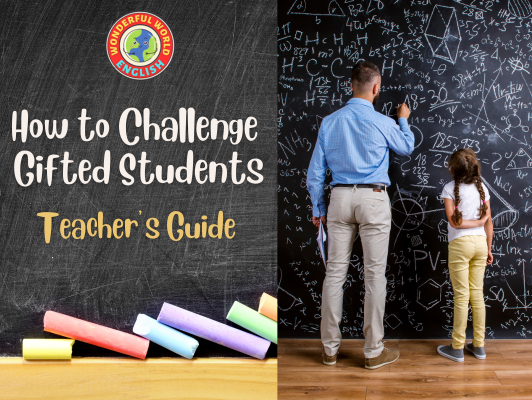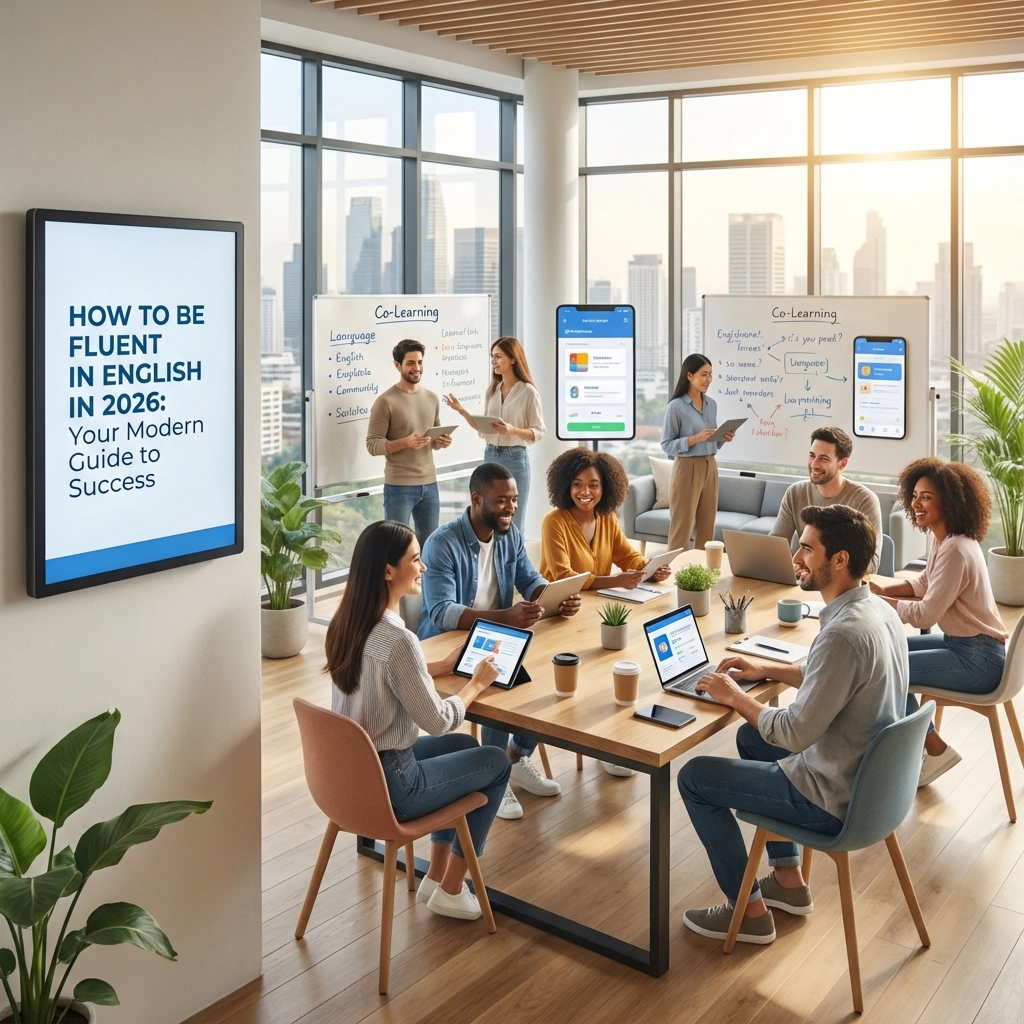Contents
Toggle
Meet David De’ Ath, co-founder, editor, and writer at Wonderful World English. With his extensive background as an English teacher, David provides valuable insights and practical tips on ESL for students and teachers alike.
Gifted students are those who possess exceptional abilities or intellectual potential in any given subject.
These abilities set them apart from their peers, which can be challenging for teachers who want to nurture this talent.
As a teacher who has taught gifted students, I can attest to the importance of keeping them engaged in class while not overwhelming other students around them.
Finding the right balance and allowing gifted students to reach their full potential is essential for their personal development and, ultimately, the betterment of society.
If a gifted student is not adequately challenged, they can become bored and unengaged, which can hinder everyone involved.
To challenge gifted students, teachers can strive to provide advanced, varied content, boosting their curiosity, encouraging critical thinking, and utilizing personalized, enriched programs. Promoting social-emotional growth and supporting their unique needs and talents is crucial for best results.
I have been teaching for several years and will impart insights into how teachers can challenge gifted students.
This guide will explore gifted students’ challenges and delve into proven strategies to help them with what they need to thrive.
Let’s jump in!

How to Challenge and Engage Gifted Students
Before we delve into how we can get the most out of a gifted student, it’s important to understand what a gifted student is.
These are individuals who exhibit exceptional intellectual, creative, or artistic abilities beyond what is typically expected for their age group.
A gifted student’s abilities can manifest in a variety of ways, such as excelling academically, being able to solve advanced problems, or showing exceptional talent in the arts.
Gifted individuals are those who demonstrate outstanding levels of aptitude (defined as an exceptional ability to reason and learn) or competence (documented performance or achievement in top 10% or rarer) in one or more domains.
Canoncityschools.org
It is often obvious who our gifted students are, although sometimes they can be harder to identify.
Make sure to involve tests, observations, and assessments of their unique talents to determine whether the student is considered “gifted fully.”
Identifying a gifted student correctly is crucial for providing the necessary support.
A) Challenges Faced by Gifted Students
Due to being on a higher level than their peers, gifted students often have to overcome obstacles that other students may not.
It’s important to address these challenges in order to combat them properly.
Let’s explore some of the major challenges that gifted students face:
– Boredom and Under-Stimulation
This is a big problem for many gifted students, as they find themselves learning material that is just too easy for them.
This can induce feelings of boredom and under-stimulation in the classroom, causing them to switch off or even misbehave.
Disengaged students can be difficult to manage and makes teaching much more of a chore than it needs to be.
If this issue isn’t addressed, it will swiftly change a gifted student into a difficult one.
For some great tips and insights on how to engage difficult students, check out the guide below!
Related Article: How to Engage Difficult Students – Teacher’s Guide
– Social Isolation
Another challenge gifted students may struggle with is not being able to connect with their peers properly.
This can be due to not sharing the same interests or having the same abilities.
This can happen to any student, so it’s important for teachers to keep an eye out for this so they can handle it accordingly.
A student who feels isolated will be impacted emotionally and be far less likely to excel academically.
– Perfectionism and Anxiety
Gifted students often strive for perfection, pushing themselves towards impressive achievements, but sometimes at the cost of anxiety and fear of failure.
Balancing the drive for excellence while managing stress is crucial to establishing a healthy learning environment that challenges yet supports their exceptional abilities.

B) Why Challenging Gifted Students Is Important
Gifted students need challenges to grow and avoid underachievement, ensuring their skills and passions are fully engaged and developed.
Let’s break down why presenting challenges to these bright minds is so important:
– Growing Their Minds
- Exploring Deeply: Challenging material lets students dive deep into topics, discover new things, and satisfy their curiosity.
- Thinking Critically: Harder tasks help sharpen their thinking, teaching them to analyze information and solve problems efficiently.
- Becoming Experts: As they engage with complex topics, they build and master important skills, potentially becoming experts in areas they love.
– Avoiding Underachievement
Without enough challenges, gifted students might not perform to their full potential.
- Staying Engaged: Keeping their minds active and interested helps prevent boredom and keeps them engaged.
- Staying Motivated: Meeting their intellectual needs keeps their love of learning alive and well.
- Using Their Potential: Constant challenges ensure their talents are recognized and fully developed.
– Supporting Emotional and Social Growth
- Building Confidence: Overcoming challenges boosts their self-esteem and confirms their abilities.
- Learning from Failure: Difficult tasks help them learn how to deal with setbacks and become more resilient.
- Working Together: Group challenges help them learn about teamwork and connect with like-minded peers.
– Getting Ready for the Future
Preparing gifted students for their future paths is also crucial.
- Preparing for Careers: Challenging work helps develop the skills they’ll need in their future jobs and fields.
- Becoming Global Citizens: Challenges help them understand the world better, preparing them to make meaningful contributions in the future.
In essence, offering gifted students ample challenges allows them to deeply explore topics, develop critical skills, and prepare for the future while supporting their emotional and social development.
This holistic approach ensures they’re engaged, motivated, and on a path to fulfilling their immense potential.
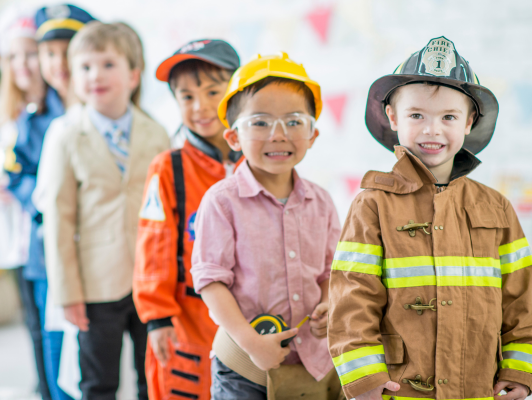
Effective Strategies for Challenging Gifted Students
When it comes to challenging gifted students, various strategies can pave the way for their intellectual and emotional development.
Let’s put this into simpler terms and look at ten effective strategies to help teachers keep gifted students challenged and engaged:
1. Different Ways Teachers Can Help
Each of these strategies is centered around acknowledging and nurturing the unique capabilities, interests, and needs of gifted students in a manner that is engaging, supportive, and continuously challenging:
– Differentiated Instruction
- Modify Pace: Speed up or slow down lessons based on student understanding.
- Enhance Depth: Go further into topics to explore more details and complexities.
- Use Varied Strategies: Employ multiple teaching methods to cater to diverse learning styles.
– Enrichment Programs
- Provide Advanced Courses: Offer extra classes that delve deeper into subjects.
- Facilitate Extracurriculars: Create clubs or workshops related to their interests.
- Encourage Group Work: Let them engage in projects with peers to explore topics further.
– Project-Based Learning
- Apply Knowledge: Let students use what they know in practical, real-world projects.
- Encourage Creativity: Allow freedom in how they approach and solve problems.
- Offer Choices: Provide topics or project-type options to pursue their passions.
– Mentorship
- Give Personal Guidance: Offer one-on-one advice and support in their learning journey.
- Develop Custom Plans: Tailor learning plans to meet their specific needs and interests.
- Connect with Experts: Help them network with professionals in their areas of interest.
2. The Crucial Role of Parents
Together, parents and teachers create a harmonized support network that allows gifted students to navigate their educational journey confidently, ensuring that their unique needs are acknowledged and addressed in a consistent and supportive manner.
– Advocacy and Support
- Expressing Needs: Parents can communicate their child’s unique needs and preferences to educators and administrators to ensure they are met.
- Providing Emotional Backup: Offering a safe space, understanding, and encouragement helps manage the emotional highs and lows gifted students might experience.
- Recognizing Accomplishments: Celebrating successes, no matter how small, reinforces positive behavior and boosts self-esteem.
– Teamwork with Teachers
- Open Communication: Regularly discussing a child’s progress, challenges, and achievements with teachers ensures a consistent approach to addressing their needs.
- Shared Strategies: Parents and teachers can collaborate to develop strategies that work effectively both at home and in the school environment.
- Unified Goals: Establishing and agreeing upon consistent objectives for the child’s development ensures alignment in efforts and expectations from both parties.
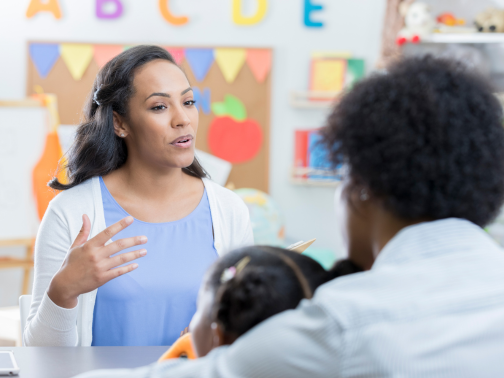
3. Keeping School Inclusive
Inclusivity in schools ensures that gifted students experience diverse social interactions and receive the emotional backing they need.
It allows them to embrace their intellect and emotions while learning valuable teamwork and empathy skills in a varied educational landscape.
Here’s how to keep things inclusive:
– Working Together
- Diverse Teams: Forming groups with students of varying skills and abilities fosters a rich learning environment where everyone contributes differently.
- Shared Projects: Engaging students in projects where they can learn from each other’s strengths and weaknesses enhances their social and collaborative skills.
- Respectful Environment: Cultivating an atmosphere where differences are appreciated and respected encourages students to value each other’s unique abilities and perspectives.
– Supporting Emotionally
- Emotional Guidance: Offering support and understanding when gifted students face challenges helps them navigate through emotional turmoil.
- Celebrating Success: Recognizing and praising achievements while acknowledging efforts in the face of failure builds resilience and self-worth.
- Safe Space: Providing a safe and non-judgmental space where students can openly express their feelings, concerns, and aspirations fosters emotional stability.
Creating a positive classroom culture is crucial for all students to excel.
For some insights on how to do this, check out the guide below!
Related Article: How to Build a Positive Classroom Culture – Teacher’s Tips
4. Clearing Up Misunderstandings
Dispelling myths about giftedness and making a deliberate effort to ensure fairness in educational opportunities is crucial.
It ensures that every student is recognized for their intrinsic abilities and is provided with the appropriate platforms and resources to excel, unimpeded by external factors or biases.
It’s important to consider these:
– Understanding Giftedness
- Innate Abilities: Realize that giftedness entails innate abilities, such as higher intellectual capabilities, not just securing top grades.
- Unique Needs: Understand that gifted students have particular academic and emotional needs that are different from high-achievers.
- Recognition: Acknowledging the varied ways giftedness can manifest and ensuring these students are identified accurately and supported appropriately is vital.
– Ensuring Fairness
- Equal Opportunities: Strive to offer equitable access to programs and resources that cater to the needs of gifted students, ensuring that every child has the chance to thrive.
- Inclusive Policies: Implement policies that account for socioeconomic, cultural, and linguistic diversities among gifted students, ensuring nobody is left behind.
- Support Systems: Establish robust support mechanisms that address the varied challenges and barriers that may hinder gifted students from different backgrounds.
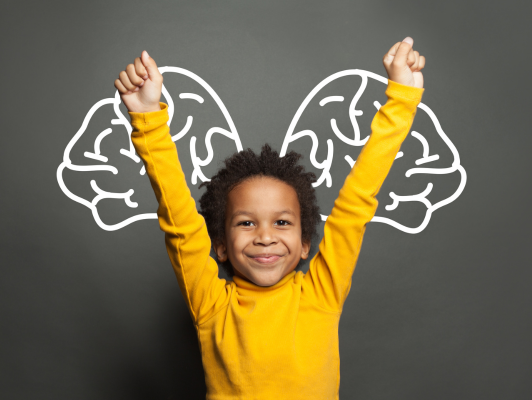
5. Why Challenges Are Beneficial
Offering challenges not only refines the intellectual capabilities of gifted students but also plays a crucial role in shaping their future.
It propels them towards developing a multifaceted skill set and nurtures an enduring enthusiasm for learning and innovation that will serve them well in all their future endeavors.
Let’s explore why challenges are so beneficial for gifted students:
– Developing Thinking Skills
- Enhanced Problem-Solving: Tackling difficult tasks helps to sharpen their problem-solving skills, enabling them to approach issues logically and creatively.
- Critical Thinking: Engaging in challenging activities cultivates their ability to analyze and evaluate situations, enhancing decision-making capabilities.
- Innovation: As they navigate through challenges, gifted students often come up with new ideas and solutions, fostering an innovative mindset.
– Setting Up for the Future
- Skill Development: By dealing with complex tasks now, they build skills like resilience, management, and leadership, which are pivotal in future academic and career pursuits.
- Career Readiness: Exposure to a range of challenges prepares them for diverse career paths, helping them identify and pursue their passions effectively.
- Life-Long Learning: Cultivating a habit of taking on challenges fosters a love for learning and adaptability, which is crucial for navigating the ever-evolving future landscape.
6. Obstacles and How to Move Past Them
Identifying these obstacles and strategically working towards solutions ensures that gifted programs remain effective and that educators are well-equipped to guide gifted students toward their full potential.
This framework supports not just the educational needs of the students, but also the professional development and support of the teachers guiding them
Let’s unpack this:
– Addressing Limited Resources
- Funding Dilemmas: Sometimes, the financial resources aren’t always available to provide adequate support for gifted programs.
- Material Challenges: Even with funding, obtaining the necessary materials or access to specific educational tools and programs can be an obstacle.
- Solutions Focus: Identifying alternative funding sources, such as grants or business partnerships, can alleviate some constraints and ensure robust programs for gifted students.
– Backing Our Teachers
- Training Needs: Teachers need specialized training to support and challenge gifted students in their educational journey effectively.
- Ongoing Support: Continuous assistance and resources for teachers are crucial to maintain high-quality instruction and adapt to changing educational landscapes.
- Community Collaboration: Forming networks where educators can share experiences, strategies, and resources can foster a supportive community, beneficial for both teachers and students.
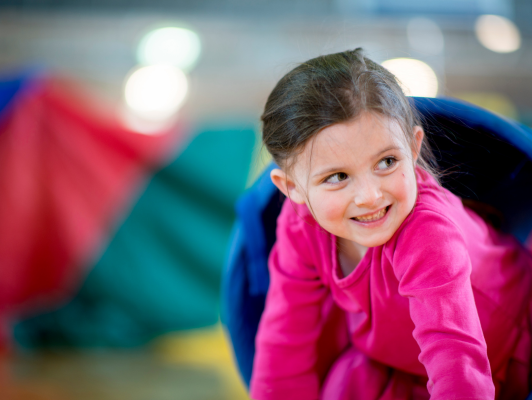
7. Looking at Success Stories
Success stories not only serve as a testament to the effectiveness of strategies employed but also act as vital learning and motivational tools.
By dissecting, understanding, and applying the insights gained, educators and parents can iteratively enhance their approaches to navigating the educational journey of gifted students.
This creates a nurturing ecosystem where strategies are implemented and continually refined for the betterment of every gifted student involved.
Let’s delve deeper:
– Learning from Others
- Celebrating Wins: Acknowledging and highlighting the triumphs of gifted students showcases the impact of specific strategies and programs.
- In-Depth Analysis: Taking a closer look at what worked allows educators and parents to understand the elements that contributed to the student’s success.
- Diverse Stories: Embracing a range of success stories from varied backgrounds and scenarios ensures that learnings are comprehensive and applicable to different contexts.
– Applying Insights
- Customization: While a strategy may work in one scenario, it’s important to tweak it according to the local needs and resources.
- Collaborative Learning: Engaging in discussions about these successes with peers, parents, and educators fosters a shared learning environment.
- Incorporating Feedback: Ensure strategies are continually refined by integrating feedback from students and educators.
– Inspiring Others
- Role Models: Successful students can serve as inspirational figures for current students, motivating them to explore their own potential.
- Building Confidence: Showcasing that success is attainable bolsters confidence among educators, parents, and students in the adopted strategies.
- Creating Buzz: Sharing these stories within and outside the educational community helps to garner support and, possibly, additional resources for gifted programs.
8. How to Tell If It’s Working
To see if we’re helping, we need to look at a mix of grades and personal growth, and listen to feedback from students, parents, and teachers.
This ensures we understand how well strategies are working and allows us to keep making them better for the gifted students’ ongoing growth and happiness.
– Beyond Just Grades
- Whole Picture: While good grades are great, also look at how happy, curious, and involved students are in school activities.
- Track Often: Keep an eye on their scores, behavior, and creativity consistently over time.
- Check the Work: See if their projects and work show deep thinking and new ideas.
– Watching Personal Growth
- Friendship Skills: Look at how well they make friends, work in groups, and help others.
- Handling Feelings: See how they deal with winning, losing, or solving problems.
- Managing Themselves: Notice how well they plan their own work and use their time.
– Listening to Feedback
- Hear the Kids: Understand what the students like or dislike about school and activities.
- Parent Views: Parents might see changes at home that can tell us more about how the student feels and acts.
- Teacher Notes: Teachers can share how students are doing in class, both in studies and in social ways.
– Keep Updating Plans
- Regular Check-Ins: Ensure plans are still helping and fitting the current situation by reviewing often.
- Change if Needed: If something’s not working, trying new strategies or change plans is okay.
- Celebrate Wins: When things go well, celebrate with the students to keep everyone motivated.
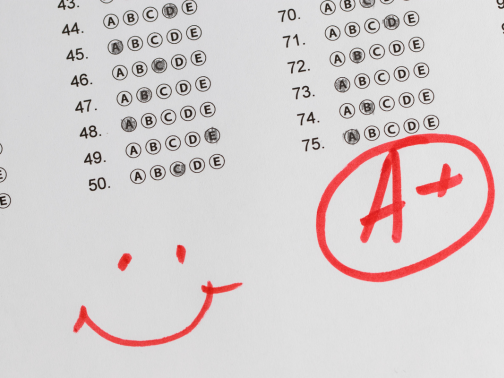
9. Connecting with Others
Helping gifted students connect with others through clubs, mentoring, friendships, and collaborative projects is vital.
It aids in their social development, ensures emotional support, enhances learning, and provides avenues for them to both lead and learn from their peers.
Thus, fostering connections can add a rich, supportive layer to their educational journey.
– Clubs and Groups
- Find Shared Interests: Encourage students to join clubs where they can dive into topics they’re curious about with peers.
- Social Learning: Being in groups helps them explore subjects and learn how to work and have fun with others.
- Boosting Confidence: Achieving group goals or sharing knowledge in clubs can make students more confident and excited about learning.
– Peer Mentoring
- Share Skills: When students help each other, they can share what they’re good at and learn new things from their peers.
- Building Empathy: Being a mentor or having one can teach students how to understand and support others’ feelings and thoughts.
- Leadership Growth: Mentoring allows students to develop leadership qualities by guiding peers and learning how to provide helpful advice.
– Forming Friendships
- Having Fun: While learning is important, simply forming friendships where they can relax and have fun is vital, too.
- Emotional Support: Friends can be there to cheer each other up, share joys, and navigate the challenges of school together.
- Social Skills: Casual friendships also let students practice important social skills like sharing, communicating, and resolving conflicts.
– Collaborative Projects
- Combine Strengths: Working on projects together allows students to merge their various skills and come up with great results.
- Learn Cooperation: Collaborative tasks teach students how to plan, discuss, and create things as a team.
- Celebrate Together: Completing a project and enjoying success as a team can be a rewarding experience that builds strong bonds.
10. Using Technology Wisely
Embracing technology is pivotal, as it unfolds a universe of advanced learning opportunities and interactive experiences.
Let’s explore how using technology wisely can become a game-changer in challenging and fostering the intellectual growth of gifted students:
– Online Learning
Utilize online platforms to offer gifted students access to advanced courses and extra challenges tailored to their abilities and interests.
Encourage independent research projects and participation in online competitions to foster their intellectual curiosity and engagement.
– Interactive Learning with Apps and Games
Implement educational games and apps that challenge and enhance the cognitive abilities of gifted students.
Leverage VR and AR technologies to provide immersive, advanced, and enjoyable learning experiences, ensuring that learning remains fun and intellectually stimulating.
For some great inspiration of fun games you can play in the classroom, check out the guide below!
Related Article: Fun Classroom Games to Play – Teacher’s Guide
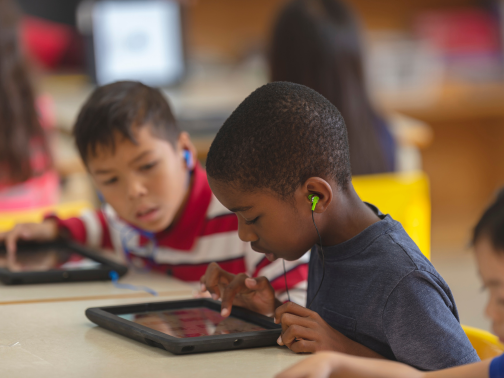
Conclusion
Navigating the educational journey of gifted students requires more than traditional teaching methods.
These unique individuals, bursting with exceptional abilities and potential, need a specialized approach that spans both academic and emotional and social development.
By harnessing effective strategies such as differentiated instruction, mentorship, and enriched programs, educators and parents can craft an environment that both challenges and supports.
The joint effort of teachers, parents, and communities is pivotal in fueling these bright minds and steering them toward becoming tomorrow’s innovators and leaders.
Embracing and nurturing their distinct talents and needs not only aids their personal and intellectual growth but also paves the way for future societal advancements.
Thus, the investment in the comprehensive development of gifted students is, unequivocally, an investment in a brighter, innovative future for all.
We hope this guide brings you value.
Have a wonderful day!
Image Attribution: All images licensed via canva.com

